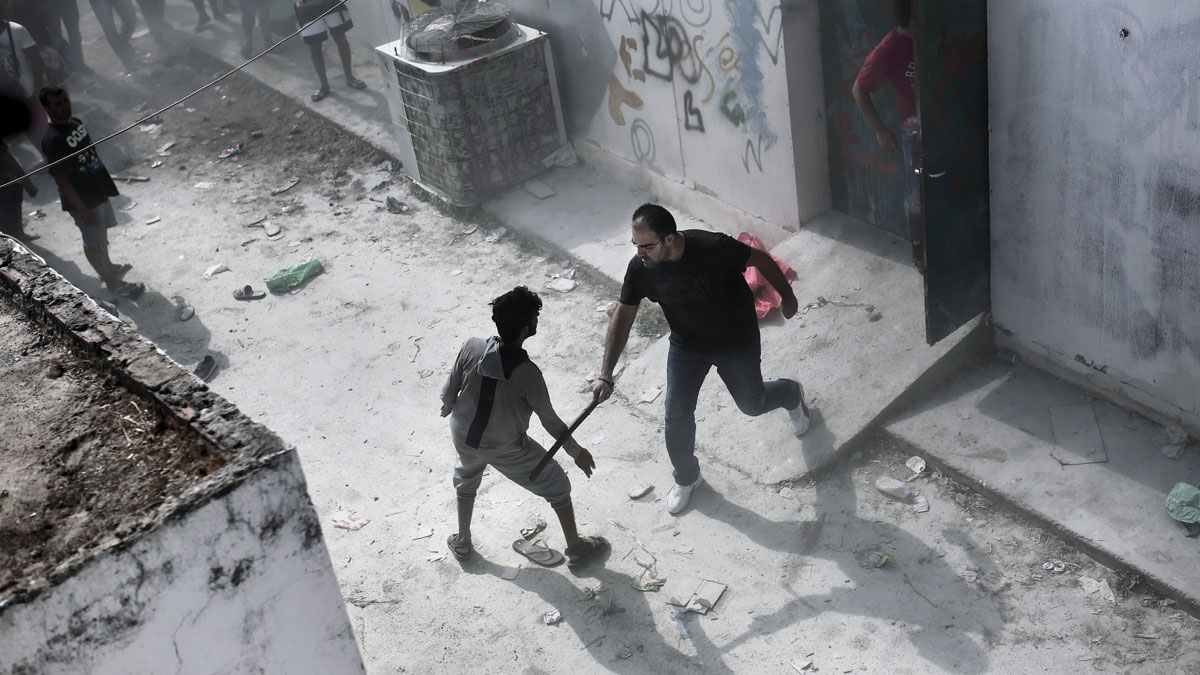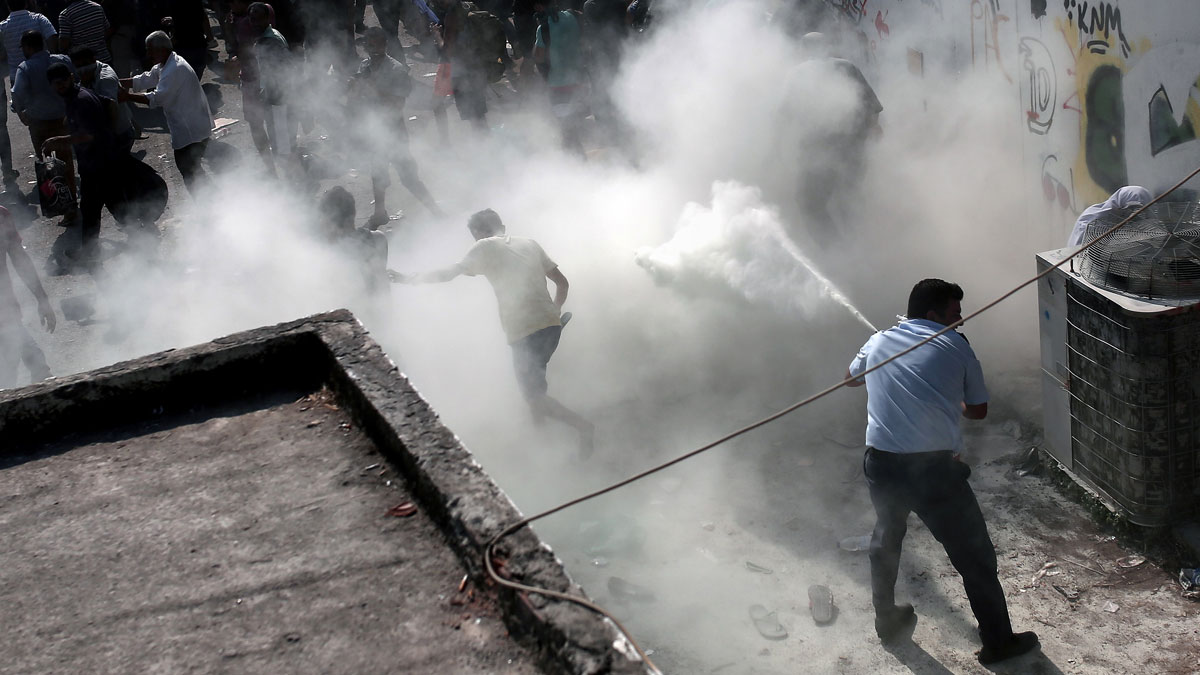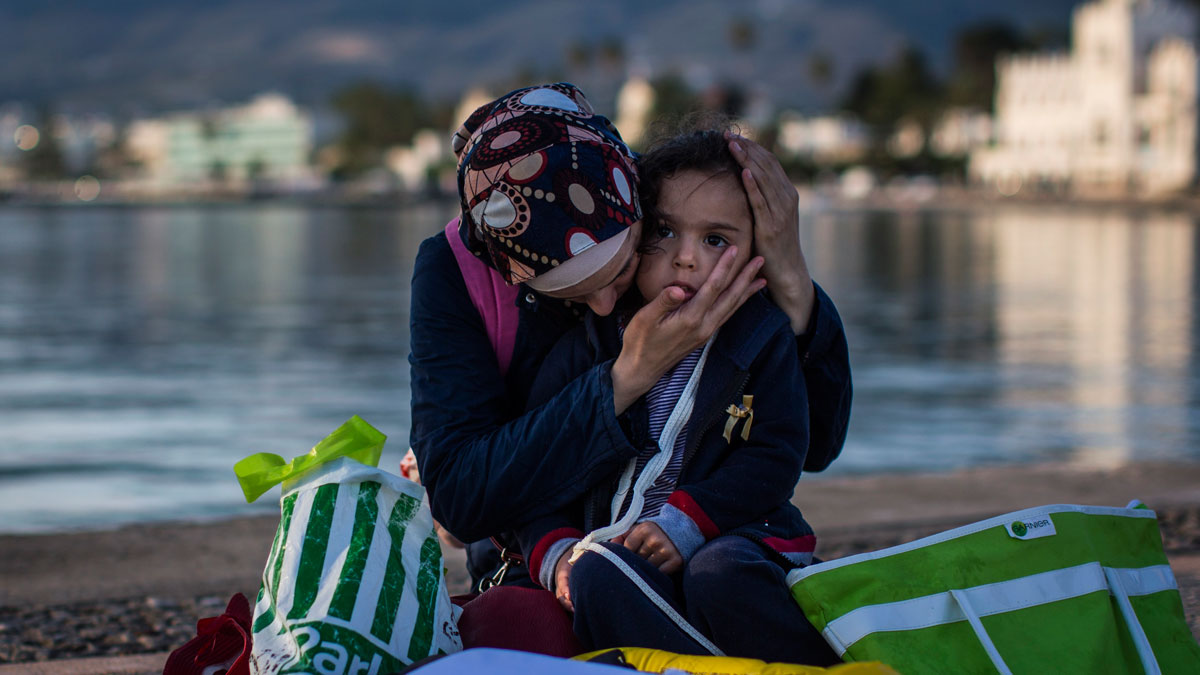Greek police accused of abusing refugees on island of Kos
Authorities warn of bloodshed as country faces humanitarian 'crisis within a crisis'

A free daily email with the biggest news stories of the day – and the best features from TheWeek.com
You are now subscribed
Your newsletter sign-up was successful
Greek authorities have been accused of abusing refugees arriving on Kos by a leading medical charity.
Médecins Sans Frontières said it was "very worried" about the Greek response to the evolving crisis on the island.
"What was previously a situation of state inaction is now one of state abuse, with police using increasing heavy-handed force against these vulnerable people," said Brice de le Vingne, MSF director of operations.
The Week
Escape your echo chamber. Get the facts behind the news, plus analysis from multiple perspectives.

Sign up for The Week's Free Newsletters
From our morning news briefing to a weekly Good News Newsletter, get the best of The Week delivered directly to your inbox.
From our morning news briefing to a weekly Good News Newsletter, get the best of The Week delivered directly to your inbox.
His comments come after up to 2,000 refugees, including women, children and young babies, were locked in a stadium overnight with no access to hygiene facilities, shade or shelter.
They were taken there after being rounded up from makeshift camps across the island, The Guardian reports. Scuffles broke out between police and refugees, with officers using batons, fire extinguishers and sound cannons to control the crowds.

"The situation on the island is out of control," warned Kos mayor Giorgos Kiritsis. "There is a real danger that blood will be shed."
Prime minister Alexis Tsipras has said Greece cannot cope with the huge influx of refugees and faces a "crisis within a crisis" because of the country's economic problems, the BBC reports.
A free daily email with the biggest news stories of the day – and the best features from TheWeek.com
The United Nations refugee agency says more than 124,000 people have arrived on Greek shores this year alone. The vast majority of them are fleeing conflict in Syria, Iraq and Afghanistan.

There is not enough food or shelter for the estimated 1,000 refugees arriving every day from Turkey and much of the response is being coordinated by volunteers and NGOs.
"The Kos authorities have clearly stated that they have no intention of improving the situation for these people as they believe that this would constitute a 'pull factor,'" de le Vingne said.
"But the truth is that people fleeing war will keep on coming whether or not the authorities are trying to stop them from doing so."
-
 Epstein files topple law CEO, roil UK government
Epstein files topple law CEO, roil UK governmentSpeed Read Peter Mandelson, Britain’s former ambassador to the US, is caught up in the scandal
-
 Iran and US prepare to meet after skirmishes
Iran and US prepare to meet after skirmishesSpeed Read The incident comes amid heightened tensions in the Middle East
-
 Israel retrieves final hostage’s body from Gaza
Israel retrieves final hostage’s body from GazaSpeed Read The 24-year-old police officer was killed during the initial Hamas attack
-
 China’s Xi targets top general in growing purge
China’s Xi targets top general in growing purgeSpeed Read Zhang Youxia is being investigated over ‘grave violations’ of the law
-
 Panama and Canada are negotiating over a crucial copper mine
Panama and Canada are negotiating over a crucial copper mineIn the Spotlight Panama is set to make a final decision on the mine this summer
-
 Why Greenland’s natural resources are nearly impossible to mine
Why Greenland’s natural resources are nearly impossible to mineThe Explainer The country’s natural landscape makes the task extremely difficult
-
 Iran cuts internet as protests escalate
Iran cuts internet as protests escalateSpeed Reada Government buildings across the country have been set on fire
-
 US nabs ‘shadow’ tanker claimed by Russia
US nabs ‘shadow’ tanker claimed by RussiaSpeed Read The ship was one of two vessels seized by the US military


